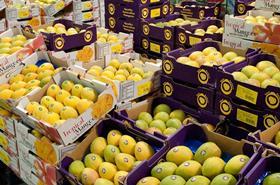
A boom could be in store for the Australian fruit business over the next five years if a new report from market analyst IBISWorld is anything to go by.
A recently updated report from the group, the Citrus, Banana and Other Fruit Growing in Australia Industry Market Research Report, has predicted that the country’s fruit business revenue will grow by 10 per cent in 2011/12 to A$2.12bn, and will continue to grow at 4.4 per cent annually until 2016/17 to A$2.64bn.
The prediction is in sharp contrast to the industry’s fortunes in recent years, with growth the report puts at just 0.7 per cent annually over the last five seasons. IBISWorld attributes the slow advance to the confluence of natural disasters that have hit the sector over that period, which have included drought, flooding, and two industry-flattening cyclones in 2006 and 2011.
The report’s growth forecast is built on steady domestic fruit consumption increases of 2.4 per cent annually over the last five years, as well as a predicted boost in exports.
“The industry is expected to flourish over the next five years to 2016/17,” the report stated.
“Forecast factors contributing to growth are stable demand for industry products on domestic and global markets, an increase in fruit consumption expenditure, greater water availability, increasing production and growth opportunities stemming from the increasing popularity of premium organic produce.”
The report predicts Australian fruit exports will grow alongside production volumes, but cautions that returns will be limited because of fierce global competition. The prediction may come as a surprise to many in the industry, which has seen exports decline at around 7 per cent annually over the past five years.
Several potential hurdles to the predicted growth are identified in the report, however.
“The major impediments to growth over the next five years are projected to be the risk of competing with low cost foreign imports given Australia’s obligations under World Trade Organisation rules and the possibility of further extreme weather patterns given the possible onset of climate change,” said IBISWorld industry analyst Suzannah Rowley.



